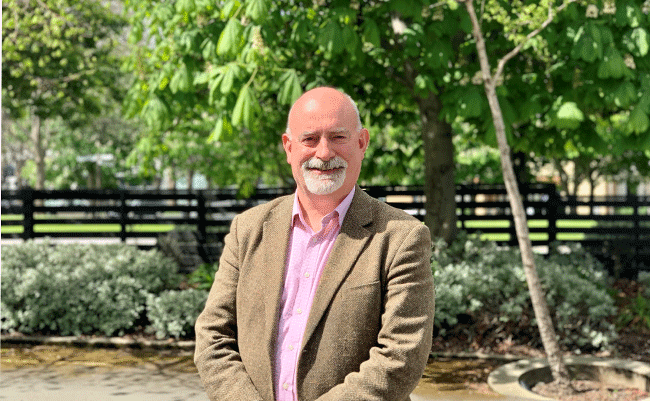Friday 25 October 2019 12:21pm

Otago's Professor David Baxter will receive a Fellowship from the Chartered Society of Physiotherapy at a ceremony in the United Kingdom in November.
A student watching his mother struggle with cancer pain was inspired to study, research and eventually become an international figure in physiotherapy and pain management.
That student is now Professor David Baxter from the University of Otago School of Physiotherapy, and he has been awarded Fellowship of the Chartered Society of Physiotherapy.
A former Dean of the University of Otago School of Physiotherapy, Professor Baxter is currently Director of the Centre for Men's Health. His career of significant research with an international impact was a key contributor to the award.
"He stands out as an international physiotherapy research leader who has influenced the international profile of the profession."
The society said the Fellowship award was “in recognition of his outstanding contribution to international physiotherapy research and, in particular, research capacity development in the profession; nationally and internationally”.
A Northern Ireland native, Professor Baxter says when he undertook his PhD in the late 1980s at the University of Ulster on the topic of medical lasers, the idea of a physiotherapist doing a PhD was regarded as a novelty.
“And it sparked a lot of interest – and physiotherapy PhD registrations!”
After serving in the armed forces he started physiotherapy with a keen interest in musculoskeletal management. Turning that interest into wider research began almost immediately.
“I started planning my honours project – focused on the effects of parachuting on the spine – when I was a second-year student, much to the bewilderment of my lecturers.”
His subsequent research path has been largely driven by his “constant interest” in pain management.
“That arose from my experiences as a student as my mother struggled with pain associated with her terminal cancer.
“I stayed on at the University, serving as head of a research group, Head of Research Graduate School, and Head of School, before coming to New Zealand in 2005 to take up the role of Dean of Physiotherapy at Otago.”
His research career has been wide-ranging, with the society noting his work in three broad areas: laser therapy; musculoskeletal disorders and physical activity and health.
His findings have been widely disseminated to clinicians and researchers from a range of professions, the Society says.
"I am so honoured to receive this recognition from the Chartered Society of Physiotherapy. It is particularly special to me as a long-standing member of the profession, and as a researcher who has witnessed the outstanding growth of research within physiotherapy over the last few decades."
“He stands out as an international physiotherapy research leader who has influenced the international profile of the profession.”
The Society also noted his “significant contribution” in research capacity development, supervision and support of others in research.
“He has successfully supervised more than 60 PhD students in a number of countries worldwide.”
He has also served as Director for the National Science Challenge for Ageing Well and Co-Director at the NZ-China Non-Communicable Diseases Research Collaboration Centre.
Professor Baxter says while physiotherapy as a profession is more than 100 years old, it has developed rapidly during the past several decades to embrace evidence-based, cost-effective treatments.
“Future research needs to focus on strengthening the evidence base for physiotherapy treatments, establishing and realising the potential of physiotherapy in contemporary healthcare, and improving the value and impact of physiotherapy services. That applies across a range of settings, including private practice primary care, in the community, and in tertiary care.”
Professor Baxter, who will be presented with the award at a ceremony in the United Kingdom in November, says receiving the Fellowship is “particularly special”.
“I am so honoured to receive this recognition from the Chartered Society of Physiotherapy. It is particularly special to me as a long-standing member of the profession, and as a researcher who has witnessed the outstanding growth of research within physiotherapy over the last few decades.”
